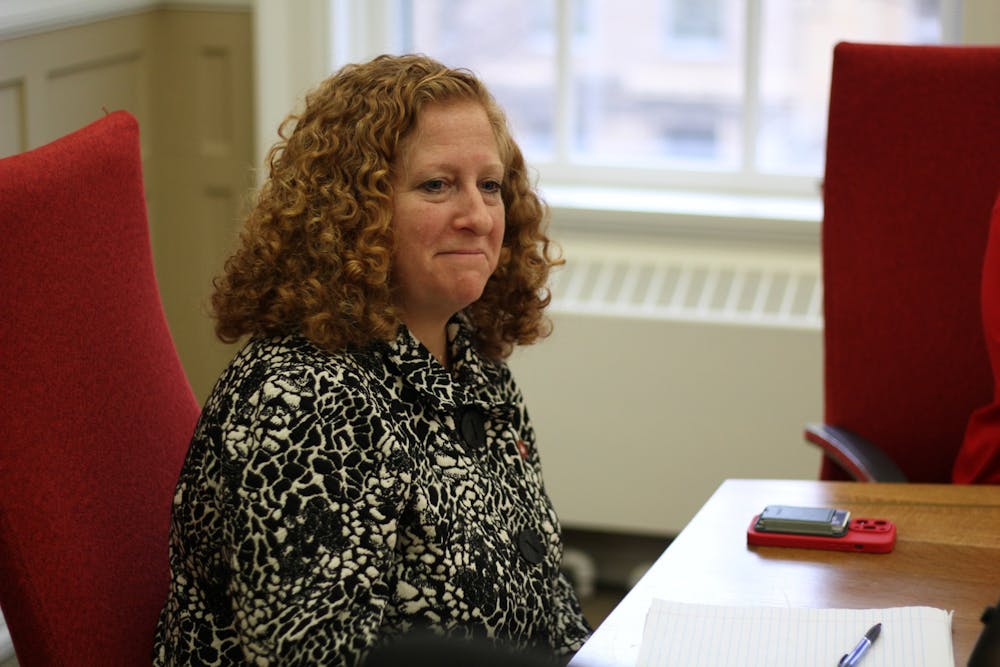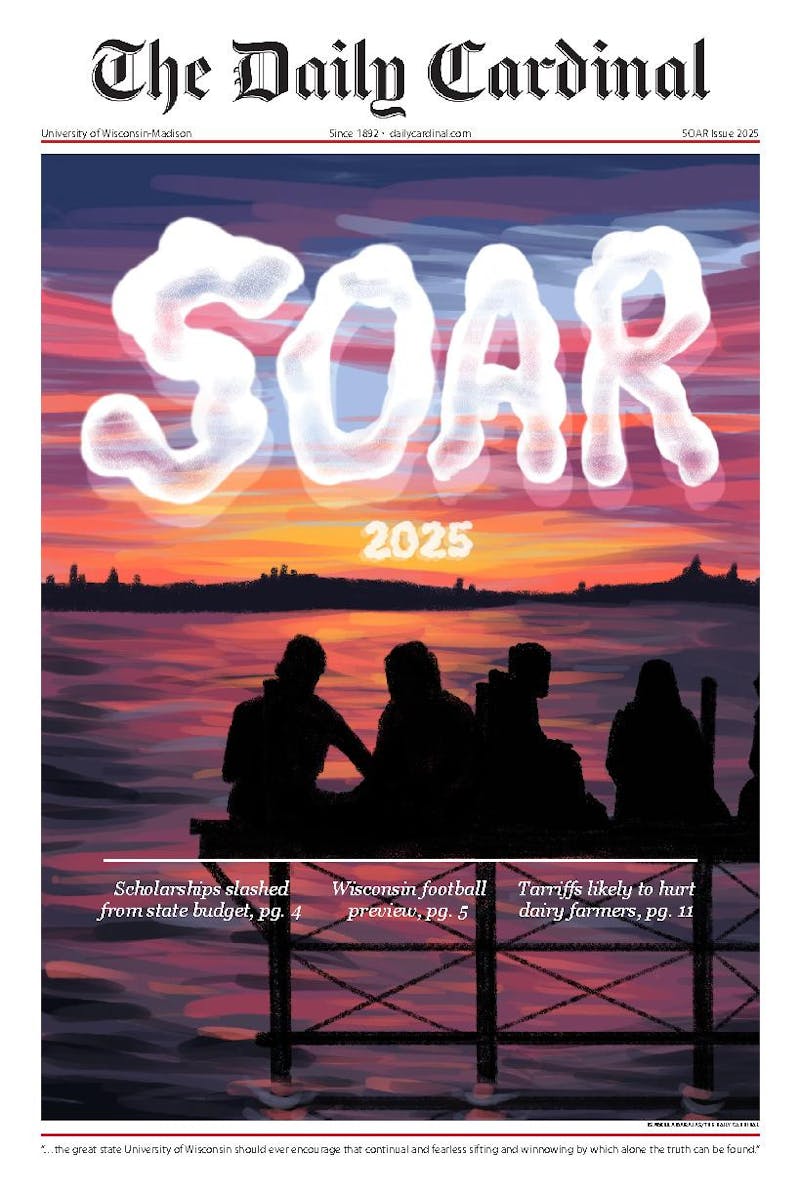Visits to a cranberry marsh, state fairs, sporting events, agricultural sectors, and meetings with alums, students, faculty, civic leaders and legislators have marked the start of University of Wisconsin-Madison Chancellor Jennifer Mnookin’s tenure.
But so have a series of events inciting controversy across campus communities.
“It’s been a whirlwind,” Mnookin said of her first 99 days in office. “I’ve been in listening and learning mode.”
In her first conversation with campus news organizations since assuming her role as chancellor in August 2022, Mnookin sat down with the Daily Cardinal, the Black Voice, WSUM Madison Student Radio and the Badger Herald on Friday afternoon. The conversation was rescheduled from late October.
UW-Madison’s Vice Chancellor for Student Affairs Dr. Lori Reesor was also in attendance at the roundtable. Mnookin and Reesor fielded questions about university mental health efforts and diversity, equity and inclusion initiatives, sexual assault in residence halls as well University Health Services (UHS) mental health and survivor services from student journalists.
Student belonging, free speech
In response to recent polarized campus occurrences such as the Matt Walsh speaker event as well as chalkings targeting Jewish students, Mnookin and Reesor reinforced the university’s commitment to facilitating students’ sense of belonging but emphasized its responsibility to the First Amendment as a public institution.
“There’s a tension between a sense of inclusion and robust free speech,” Mnookin said. “The First Amendment actually protects most hate speech.”
Both Mnookin and Reesor highlighted the emotional difficulties students face in response to these events. However, Mnookin contends that the First Amendment — and all of its protections — applies directly to UW-Madison as it is a public university.

“One person’s hate speech is another person’s idea,” Mnookin explained, asserting the administration is not trying to “change anyone’s mind” but rather “help students understand they can learn from people who they disagree with.”
Mnookin mentioned Wisconsin's political climate and some legislators' concerns about the university.
“And, you know, right now, we see for example, there's legislators out there, some here and across the country who would like to ban the teaching of some areas at our university because they think that that speech and that teaching is dangerous,” Mnookin said.
Republicans criticized Mnookin's hiring over her defense of critical race theory, a concept often only taught in higher education that has become a local issue for K-12 school boards across the country.
Ultimately, as a public university, Mnookin wants to ensure all students belong on campus, she said.
“My hope is that as an institution that we can help our students, our staff, our faculty and our community develop a strong enough sense of belonging that they don't find it personally threatening or unsafe to have people somewhere else on campus saying things that they think are wildly wrong,” Mnookin added.
Decline in research ranking
Mnookin also touched on the importance of the university’s research in her vision as chancellor.
“Research is one of the pillars absolutely central to who we are as a university,” she said.
Since 2015, UW-Madison has slowly fallen in its research expenditure ranking and now places eighth nationally. Prior to 2015, the university ranked in the top five every year since the survey’s inception in 1972.
According to Mnookin, conversations with UW-Madison administrators and deans are currently underway to plan how the university “can reverse this trend.”

“I've been having conversations with deans and leadership about ways that we can position ourselves to remain as competitive as possible,” she added.
Yet, Mnookin underscored the importance of not solely considering the success of research through its expenditures.
“It's really important that we not just see dollars as a way to evaluate whether we're doing important work,” Mnookin said.






